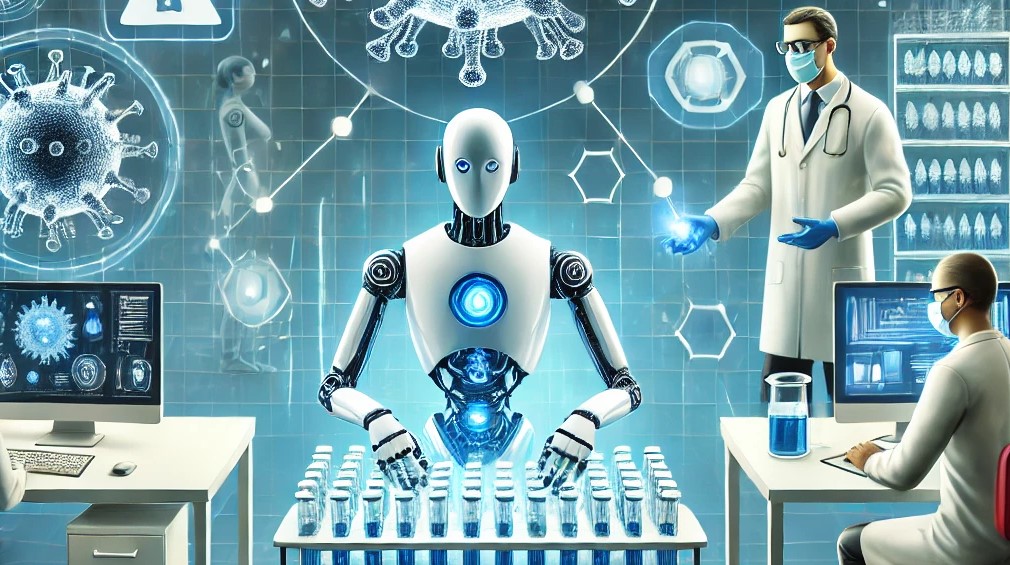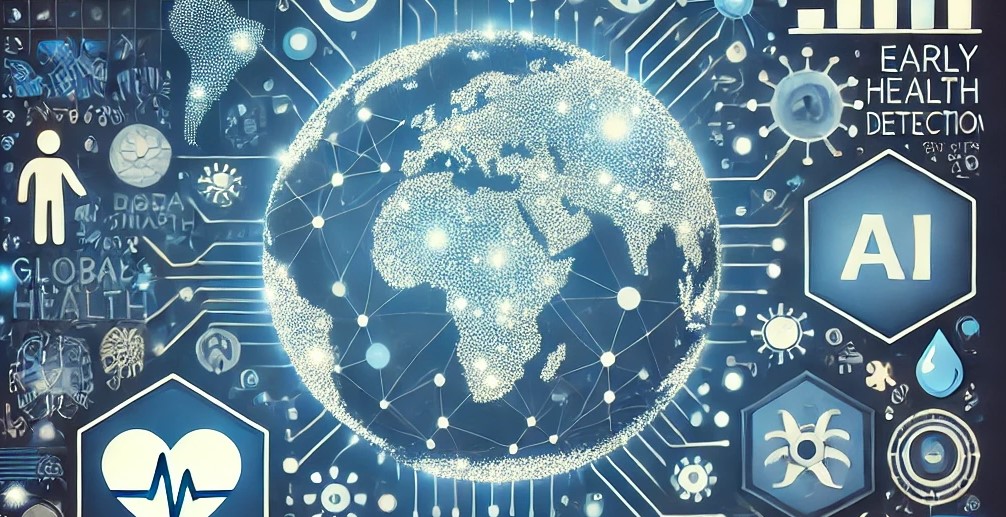As the world anticipates the next global health crisis, referred to by experts as “Disease X,” researchers are turning to artificial intelligence (AI) as a critical tool in pandemic preparedness. With some forecasting a 1-in-4 chance of another major pandemic within the next decade, AI’s role in early detection, vaccine development, and outbreak prediction has the potential to significantly mitigate the effects of future epidemics. But while AI shows promise, experts agree that it is not a cure-all—human decisions, trust, and ethical considerations will remain essential.
AI as an Early Warning System

One of the most compelling applications of AI in pandemic preparedness lies in early detection. Researchers from the University of California, Irvine (UCI), and the University of California, Los Angeles (UCLA), have developed an AI-based early warning system aimed at identifying potential pandemics through social media activity. This tool, funded by the U.S. National Science Foundation’s Predictive Intelligence for Pandemic Prevention program, analyzes billions of social media posts to detect patterns that may signal a looming health crisis.
The AI system, spearheaded by Professor Chen Li from UCI, processes data from platforms like X (formerly known as Twitter) to detect abnormal trends in public health discourse. By using machine learning algorithms, the system categorizes events that could indicate the emergence of an epidemic, enabling health authorities to act quickly. This technology can also evaluate the effects of public health interventions, allowing governments and healthcare providers to adjust strategies in real-time.
Despite its potential, the tool is not without challenges. Access to social media data is not uniform across the globe, and reliance on platforms like X, which are unavailable in some countries, limits its global applicability. As Professor Li acknowledges, “We are working to overcome the data scarcity and potential bias when we expand the coverage to other regions of the world.”
Predicting Virus Mutations and Accelerating Vaccine Development

AI’s capabilities go beyond detection. Tools like EVEScape, developed by Harvard Medical School and the University of Oxford, use AI to predict new virus variants, a feature particularly useful during fast-evolving pandemics like COVID-19. By ranking new variants and forecasting mutations, EVEScape can assist vaccine manufacturers in staying ahead of viral mutations, ensuring more effective vaccine development. The tool has already shown success in predicting mutations of not only COVID-19 but also other viruses such as HIV and influenza.
Jim Wetherall, AstraZeneca’s vice president of data science and AI R&D, highlights how AI is also streamlining the discovery of new antibodies. AI systems allow pharmaceutical companies to screen libraries of potential antibodies much faster than traditional methods, cutting the time needed to identify viable candidates from months to days. This speed is crucial in addressing rapidly mutating viruses, as experienced during the COVID-19 pandemic.
The Role of AI in Global Health Security

AI’s role in pandemic response is further underscored by organizations like the Coalition for Epidemic Preparedness Innovations (CEPI), which funded the development of EVEScape. According to Dr. In-Kyu Yoon, CEPI’s director of innovative technology, AI enhances the speed of pandemic preparedness. “What AI does is it speeds up that preparation process,” he says, emphasizing the need for rapid, data-driven responses during health crises.
However, Dr. Yoon, along with other experts, stresses that AI is only as effective as the data fed into it. AI’s predictive power depends on the quality and scope of the information it analyzes. “Garbage in, garbage out” remains a guiding principle. AI models require comprehensive, accurate data to avoid biased outcomes that may overlook marginalized populations or perpetuate misinformation.
Challenges and Ethical Considerations
Despite its potential, AI is not a magic bullet for preventing pandemics. Dr. Philip AbdelMalik, head of intelligence at the World Health Organization (WHO), is cautious about AI’s limitations. While AI can detect early warning signs of disease outbreaks and identify dangerous misinformation, it cannot replace human decision-making. The technology is a tool that must be used responsibly, particularly when it comes to ethical concerns around data privacy and equitable representation.
For AI to be effective on a global scale, trust must be built between governments, healthcare institutions, and the public. As Dr. AbdelMalik points out, technology alone is not the limiting factor in pandemic response. “I think we really have to work on relationships, on information sharing and building trust,” he says. Without trust, even the most advanced AI systems will struggle to achieve their full potential.
Conclusion: A Better Prepared Future?
From my point of view, the integration of AI into pandemic preparedness is a promising development that could revolutionize how we respond to emerging diseases. Early detection, faster vaccine development, and predictive tools give us an edge in tackling rapidly evolving health threats. However, the technology is only part of the solution. The effectiveness of AI depends on the quality of data, ethical use, and, most importantly, collaboration and trust among global health stakeholders.
In sum, while AI has brought us a long way since the onset of COVID-19, it is not a panacea. It must be applied strategically, and its development should go hand-in-hand with improved public health infrastructure, transparent communication, and a commitment to equitable healthcare access. As the world braces for the next pandemic, it’s clear that AI will play a critical role—but only if used in concert with human ingenuity and global cooperation.






